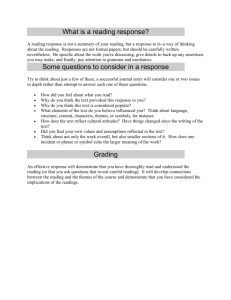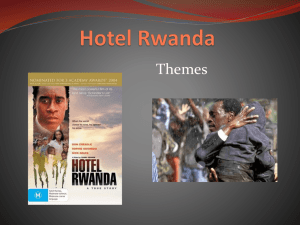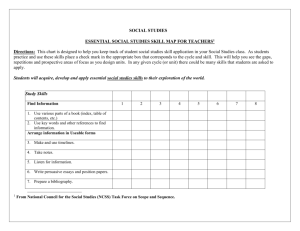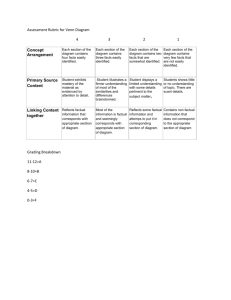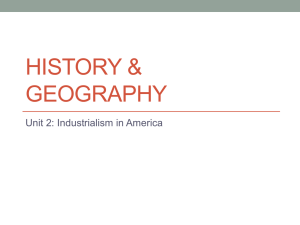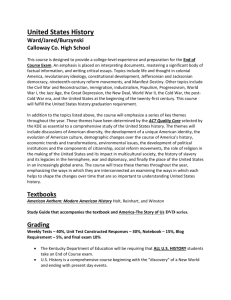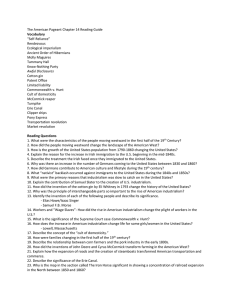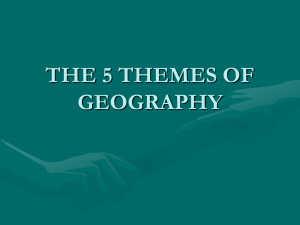Honors US II Themes Project 2012 Description: US II Historical
advertisement
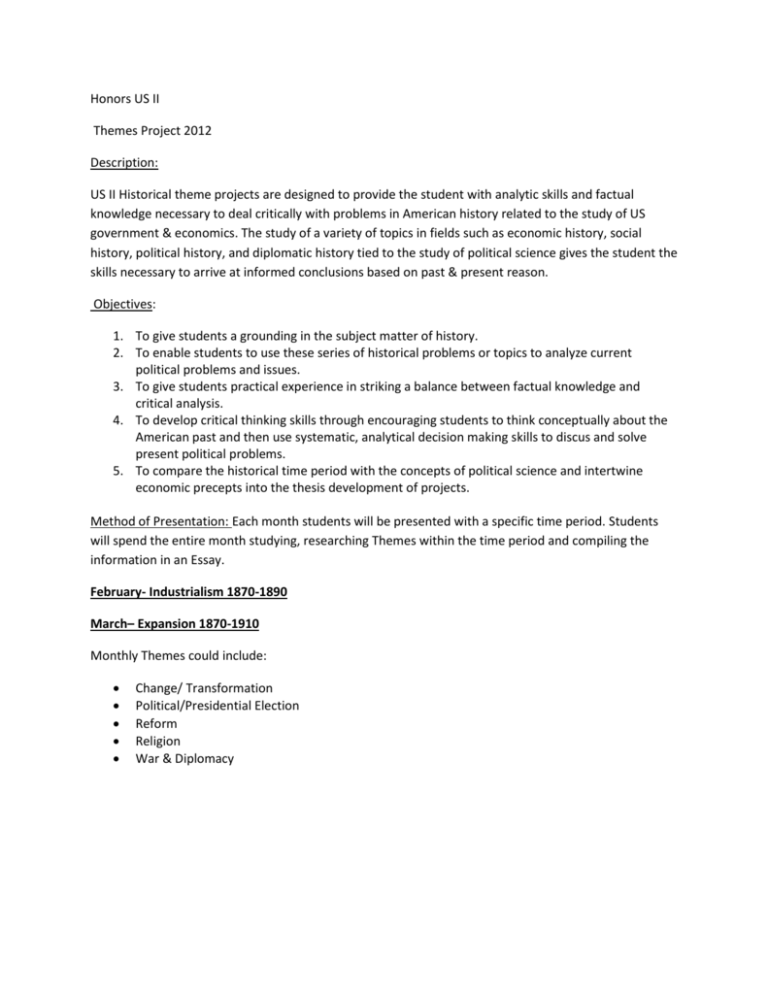
Honors US II Themes Project 2012 Description: US II Historical theme projects are designed to provide the student with analytic skills and factual knowledge necessary to deal critically with problems in American history related to the study of US government & economics. The study of a variety of topics in fields such as economic history, social history, political history, and diplomatic history tied to the study of political science gives the student the skills necessary to arrive at informed conclusions based on past & present reason. Objectives: 1. To give students a grounding in the subject matter of history. 2. To enable students to use these series of historical problems or topics to analyze current political problems and issues. 3. To give students practical experience in striking a balance between factual knowledge and critical analysis. 4. To develop critical thinking skills through encouraging students to think conceptually about the American past and then use systematic, analytical decision making skills to discus and solve present political problems. 5. To compare the historical time period with the concepts of political science and intertwine economic precepts into the thesis development of projects. Method of Presentation: Each month students will be presented with a specific time period. Students will spend the entire month studying, researching Themes within the time period and compiling the information in an Essay. February- Industrialism 1870-1890 March– Expansion 1870-1910 Monthly Themes could include: Change/ Transformation Political/Presidential Election Reform Religion War & Diplomacy Industrialism 1870-1890 Transportation revolution-Railroads Effects of technological development Market economy National politics and the influence of corporate power Social & Class Structure changes-workers and the work place Immigration & migration-the changing face of America Labor & Unions Social Darwinism-Social Gospel Urbanization-the lure of the city City problems and machine politics Intellectual & cultural movements Utopian communities Popular entertainment Presidential Elections Social & Class Structure Origins of the ‘New South’ Expansionism 1880 -1910 Development of the West Expansion of Western Railroads Competitors for the West: miners, ranchers, homesteaders, and Native Americans Government policy toward American Indians Indian Wars & treaties Gender, race & Ethnicity in the far West Spanish American War & Diplomacy Political & economic Expansion Latin American Relations-central America US emergence as a World Power- sail of the Great White Fleet Open Door Policy in China
